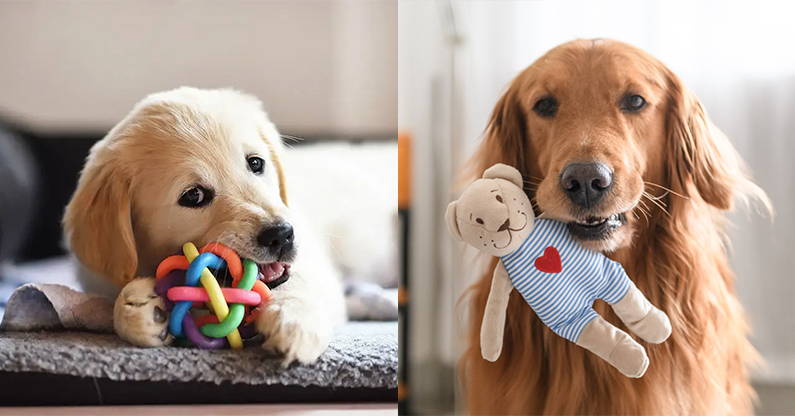
The Hidden Dangers of Common Pet Toys: Opting for Natural Alternatives
A must-read for every pet owner

As a pet owner and blogger, I am always searching for the best ways to keep my furry friends happy, healthy, and safe. One often overlooked aspect of pet care is the safety of the toys we give our pets. Many common pet toys, while entertaining, can pose hidden dangers due to the materials and chemicals used in their manufacturing. In this blog, I will explore these risks and discuss natural, safer alternatives to ensure our pets can play without harm.
The Hidden Dangers of Common Pet Toys:
Many pet toys available on the market today are made from synthetic materials that can be harmful to our pets. Some of the common dangers include:
- Toxic Chemicals: Many plastic toys contain harmful chemicals like BPA, phthalates, and PVC. These chemicals can leach out, especially when chewed or licked, and can lead to various health issues such as hormonal imbalances, developmental problems, and even cancer.
- Choking Hazards: Small parts or easily breakable toys can become choking hazards. If a pet accidentally swallows a piece, it can lead to serious gastrointestinal blockages or injuries.
- Allergenic Materials: Some pets are allergic to certain materials used in toys, such as synthetic fibers or rubber. These allergies can cause skin irritations, itching, and other uncomfortable symptoms.
- Non-Biodegradable: Many pet toys are not environmentally friendly. When these toys are discarded, they contribute to environmental pollution and can take hundreds of years to decompose.
Opting for Natural Alternatives
To keep our pets safe and healthy, it’s essential to consider natural alternatives for their toys. Here are some options that are not only safer for pets but also environmentally friendly:
- Natural Rubber Toys: Natural rubber is a durable and non-toxic material that is safe for pets to chew on. It’s a great alternative to synthetic rubber and plastic toys. Look for toys made from 100% natural rubber, free from harmful chemicals.
- Organic Cotton and Hemp Toys: Toys made from organic cotton or hemp are free from synthetic fibers and pesticides. These materials are gentle on pets’ skin and are biodegradable, making them an eco-friendly choice.
- Wooden Toys: Natural wooden toys, especially those made from untreated wood, are safe for pets to chew on. They are sturdy and provide a satisfying texture for pets who love to gnaw.
- Recycled Materials: Some companies are now producing pet toys from recycled materials, such as old clothes or plastic bottles. These toys help reduce waste and are often designed with pet safety in mind.
- DIY Toys: Making your own pet toys from household items can be a fun and safe alternative. For example, an old t-shirt can be knotted into a tug toy, or a cardboard box can be transformed into a fun playhouse.
Switching to natural pet toys offers several benefits
- Safety: Natural materials are less likely to contain harmful chemicals, reducing the risk of health issues.
- Durability: Many natural materials, like natural rubber and wood, are incredibly durable and can withstand heavy chewing.
- Eco-Friendly: Natural and biodegradable materials help reduce environmental impact, making them a sustainable choice.
- Peace of Mind: Knowing that your pet’s toys are safe and non-toxic provides peace of mind for pet owners.
Final thoughts
As pet owners, it’s our responsibility to ensure that our furry friends have safe and healthy play options. By opting for natural pet toys, we can protect our pets from the hidden dangers of synthetic materials while also making environmentally conscious choices.
Our pets deserve the best care, and sometimes that means looking beyond conventional products to find safer, more natural alternatives. Let’s keep our pets happy, healthy, and safe with toys that are good for them and the planet.
Feel free to reach out with any questions or share your own experiences with natural pet toys in the comments below. Let’s keep our pets happy and healthy together!

Have any questions? Contact me at Jane@janewoodarf.com
Facebook: Jane Woodarf